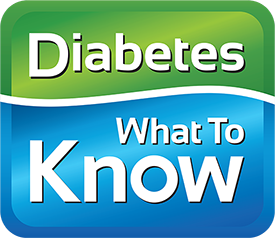Many people with diabetes wonder if they can “reverse” or “cure” type 2 diabetes by using natural remedies, like herbs or nutritional supplements, or by following a certain diet. Is there any truth to this? Is it possible to treat diabetes “naturally” without medicines? Let’s learn the facts.
Fact #1. Different types of diabetes require different treatments. Type 1 diabetes must be treated with insulin. The discussion of alternatives to medication can only apply to people who are diagnosed with type 2 diabetes.
Fact #2. Diabetes can not be “reversed” or “cured.” However, there are times when diabetes can go into remission and be controlled with diet alone. Remission is defined as having an A1C of less than 6.5 and staying there for at least 3 months while not taking any diabetes medicines.
This is more likely to happen when someone has had type 2 diabetes for only a short time. It is important that if diabetes does go into remission, the A1C must still be checked every 3-6 months to make sure it does not rise back into the diabetes range. Remission, when it happens, is usually temporary.
Fact #3. Dietary supplements will not help blood sugar. There are no supplements, vitamins, or minerals that have been proven to lower blood sugars or lead to diabetes remission. There are many articles touting the benefits of certain supplements such as chromium, cinnamon, ginseng and berberine; however, none of them can be seen as a cure and none of them will bring diabetes into remission.
Fact #4. Some very low-calorie weight loss diets are linked with diabetes remission. While some people who have only had type 2 diabetes for a short time have been able to achieve remission after following a strict, very low calorie meal plan, it is not very common.
Those who are successful are usually part of a medically managed, structured program that provides a great deal of support. Others have been able to achieve remission following a very low carbohydrate diet. Both of these options are difficult to adhere to for the long term, and remission is usually temporary. Talk to your doctor if this is something you want to try.
Fact #5. Metformin is a safe, effective first-line treatment for type 2 diabetes. There are so many different diabetes medicines that work in different ways. Metformin is usually the first choice treatment for type 2 diabetes. It can also be used to prevent or delay the onset of diabetes. It is inexpensive and the side effects are minimal and well-understood. In addition to helping lower blood sugar, there are a growing number of additional benefits that are linked with metformin such as cardiovascular benefits, reduced risk of stroke, certain cancers and dementia.
Bottom line: Keeping your blood sugar in target range (see general guidelines below) will help prevent complications and enable you to live a long, healthy life. Taking the medicines your doctor prescribes is the most effective way to keep your numbers at goal. Check with your doctor or healthcare provider to find out what specific goals are right for you, but here are the general goals for people with diabetes.
- Before breakfast and before meals: 80 – 130 mg/dl
- Two hours after meals: Less than 180 mg/dl
- Bedtime: 90 – 150 mg/dl
If you also want to try a dietary approach, keep taking your medications while working with your healthcare provider on a weight loss plan. As your blood sugar numbers go down, your provider may be able to reduce your medicines, or take you off of them completely. No matter what approach you choose, make sure your doctor checks your A1C every 3-6 months to ensure it stays on target. You got this!
The medical information on Diabetes – What To Know’s website is provided as an information resource only. The content is not in any way intended to be nor should you rely on it as a substitute for professional medical evaluation, diagnosis, advice and treatment.

